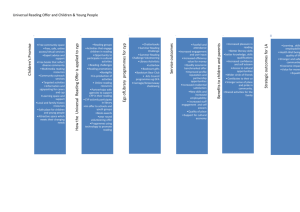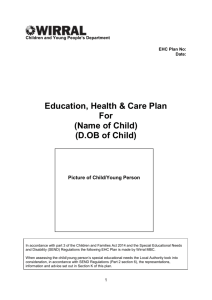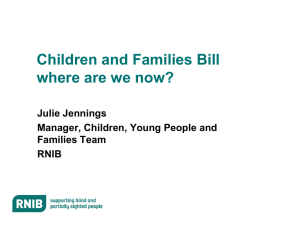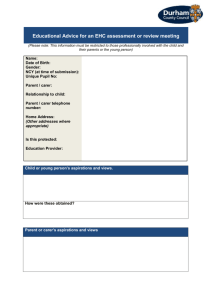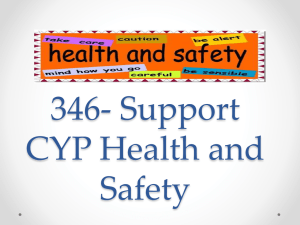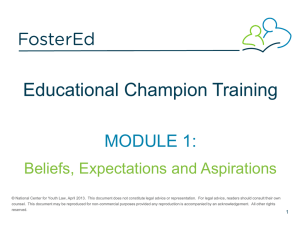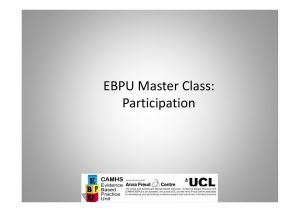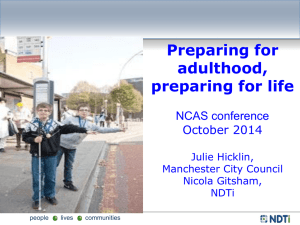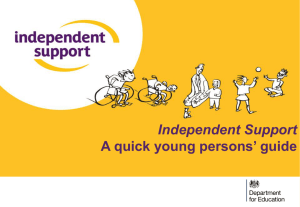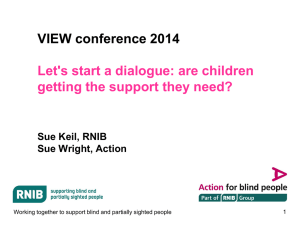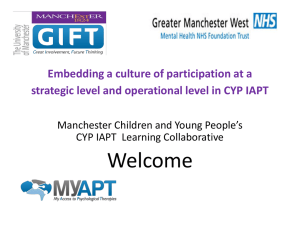Transition Guidance
advertisement
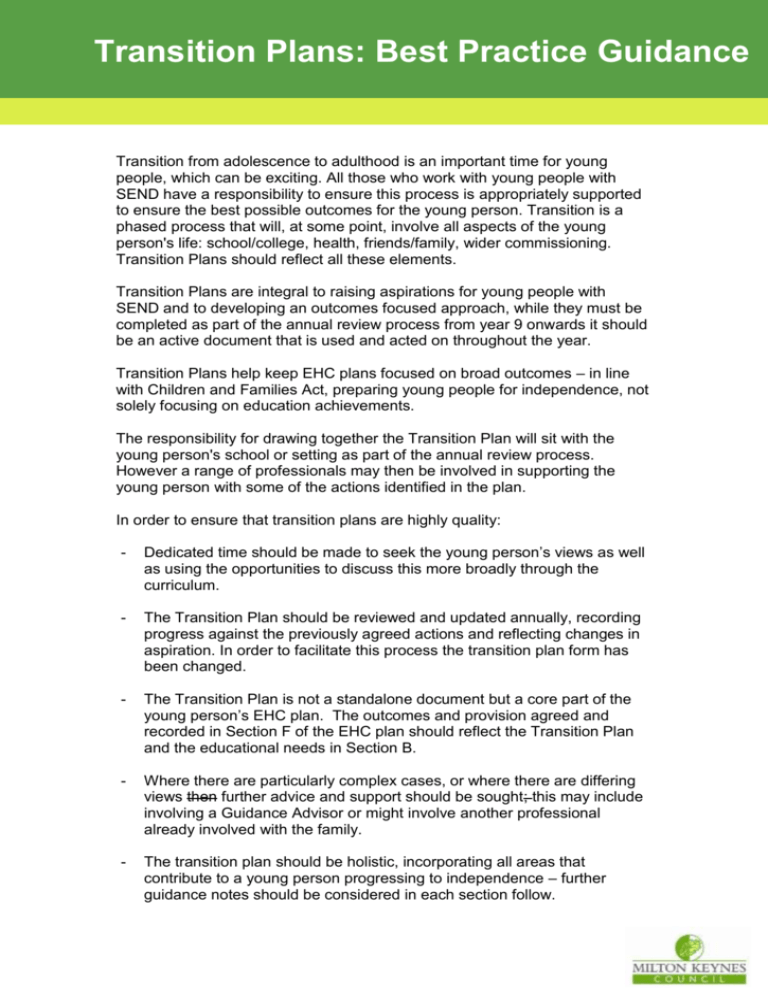
Transition Plans: Best Practice Guidance Transition from adolescence to adulthood is an important time for young people, which can be exciting. All those who work with young people with SEND have a responsibility to ensure this process is appropriately supported to ensure the best possible outcomes for the young person. Transition is a phased process that will, at some point, involve all aspects of the young person's life: school/college, health, friends/family, wider commissioning. Transition Plans should reflect all these elements. Transition Plans are integral to raising aspirations for young people with SEND and to developing an outcomes focused approach, while they must be completed as part of the annual review process from year 9 onwards it should be an active document that is used and acted on throughout the year. Transition Plans help keep EHC plans focused on broad outcomes – in line with Children and Families Act, preparing young people for independence, not solely focusing on education achievements. The responsibility for drawing together the Transition Plan will sit with the young person's school or setting as part of the annual review process. However a range of professionals may then be involved in supporting the young person with some of the actions identified in the plan. In order to ensure that transition plans are highly quality: - Dedicated time should be made to seek the young person’s views as well as using the opportunities to discuss this more broadly through the curriculum. - The Transition Plan should be reviewed and updated annually, recording progress against the previously agreed actions and reflecting changes in aspiration. In order to facilitate this process the transition plan form has been changed. - The Transition Plan is not a standalone document but a core part of the young person’s EHC plan. The outcomes and provision agreed and recorded in Section F of the EHC plan should reflect the Transition Plan and the educational needs in Section B. - Where there are particularly complex cases, or where there are differing views then further advice and support should be sought; this may include involving a Guidance Advisor or might involve another professional already involved with the family. - The transition plan should be holistic, incorporating all areas that contribute to a young person progressing to independence – further guidance notes should be considered in each section follow. Any questions or concerns should be directed to the SEN caseworker. All transition plans are actively monitored by your caseworker and the annual review will not be considered complete and will be returned unless this has been undertaken. Transition Plans – preparing for adulthood: From Year 9 Onwards The Transition Plan must be included as part of the Education, Health and Care Plan and reviewed and updated as part of the Annual Review process from Year 9. View of the Child / YP The child or young person’s aspirations and abilities should be central to the planning, giving thought to: Employment, education, training Independent living Health, well-being and leisure The Outcomes in Section E should be ambitious and stretching, reflecting the CYP’s aspirations. View of the Parent / Carer What are their aspirations? What support is required to help CYP achieve their aspirations? Plans for: Employment, opportunities education, training and other What needs to happen to support CYP in successfully achieving their goals? Support to be provided, for example: Careers advice Work experience Help in identifying other options such as apprenticeships, Making applications This should be included within Special Education Provision Section F Plans for: Independent living (travel, managing money, housing) What needs to happen to support CYP in successfully achieving their goals? Support that will be provided, for example: Local housing options Housing benefits Learning to use transport Basic budgeting skills This should be included within Special Education Provision Section F Plans for: Health, well-being, leisure What needs to happen to support CYP in successfully achieving their goals? What are the young person’s interests and what is important to them to enable them to have a fulfilling life Support that will be provided, for example: Transition from specialist paediatric services to adult healthcare Finding out about local social/community activities Developing and maintain friendships Building hobbies and interests This should be included within Special Education Provision Section F
